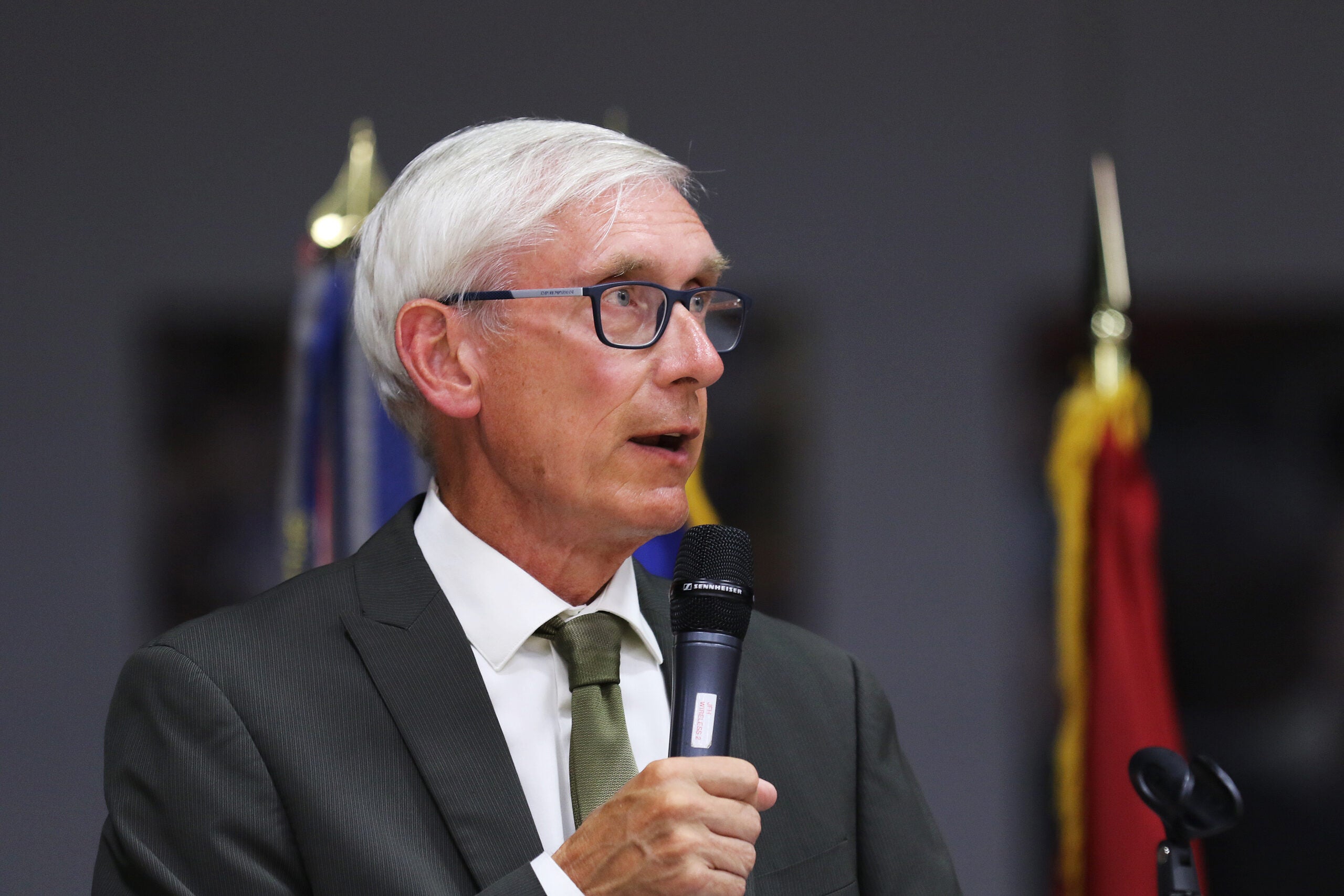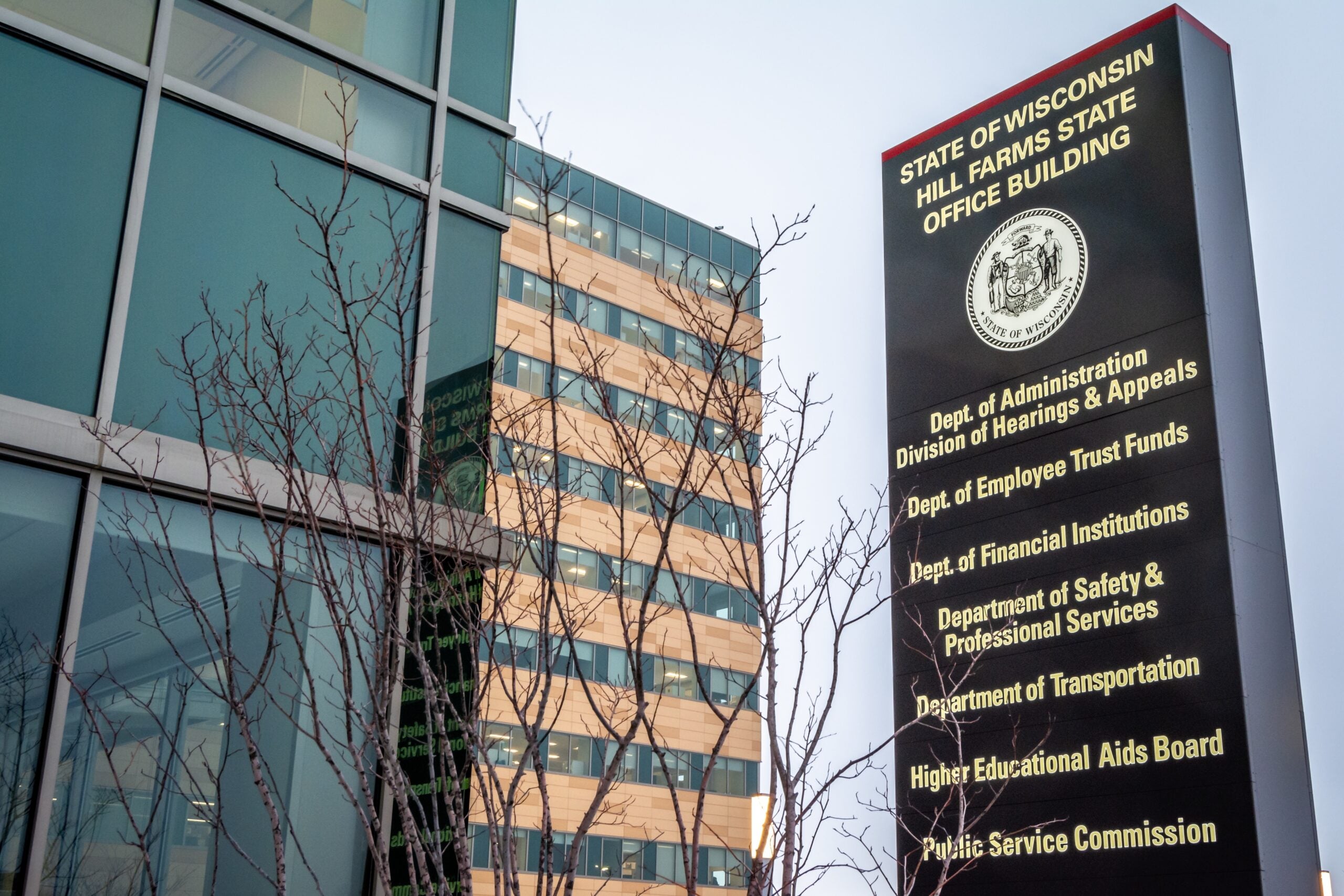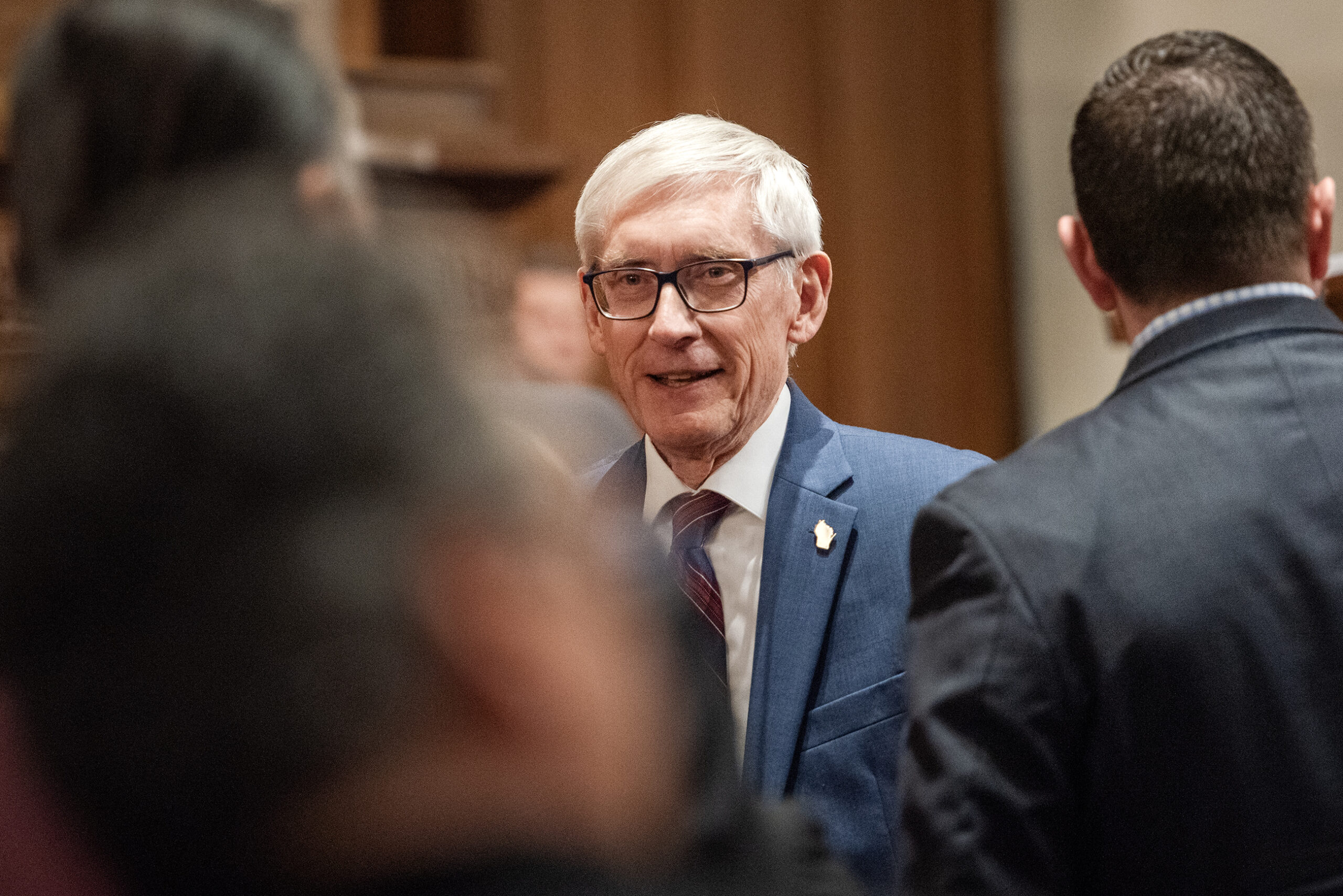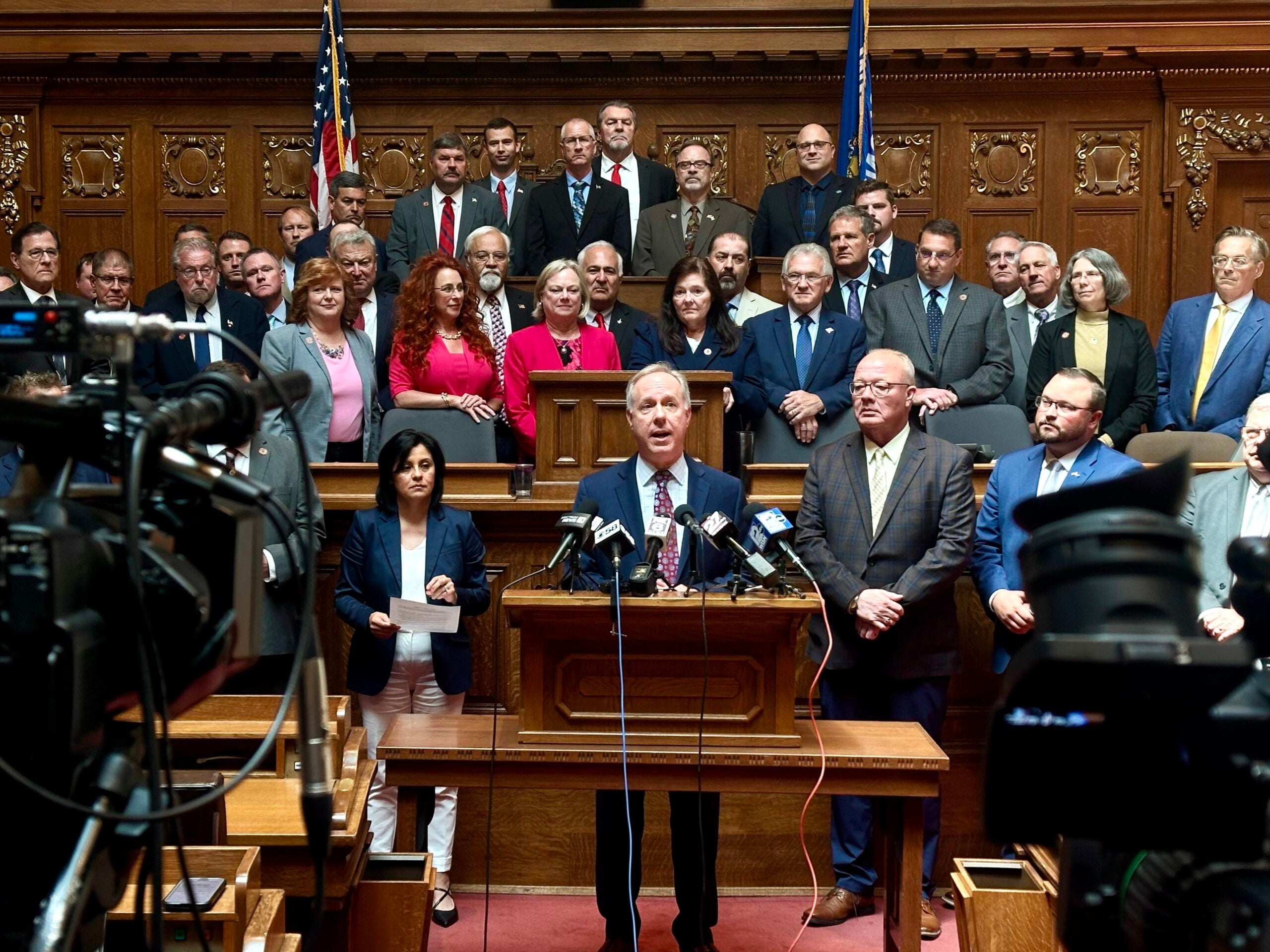Wisconsin’s response to the spread of COVID-19 continues to change and grow.
The initial public health response now encompasses nearly every sector of society, such as schools, first responders, businesses, elections and more.
Many Wisconsinites have sent questions about the state’s response through WHYsconsin.
News with a little more humanity
WPR’s “Wisconsin Today” newsletter keeps you connected to the state you love without feeling overwhelmed. No paywall. No agenda. No corporate filter.
Wisconsin Gov. Tony Evers joined WPR’s “All Things Considered” to answer some of those questions.
This transcript has been edited for brevity and clarity.
Q: Many people are asking questions now about testing guidelines, and the availability of tests. What is the state currently doing to expand access to testing and who should be getting tested now?
Gov. Tony Evers: We are continuing to work with the federal government on this issue. It’s a complex issue and clearly there was some delay in the federal government getting started. We are in a position to continue to do the testing we need to do at this point in time. Clearly we need to ramp it up. I know the (state) Department of Health has worked with other private entities to put them online to do testing.
Right now it’s pretty simple. If people feel that they’re not feeling well, they go to the doctor. The doctor decides that they should do this test; then the test is done. We, at one point in time, were required to go through the federal government to make this happen. Now it’s our local physicians and their staff that’ll be making that decision.
Q: The White House yesterday advised people to avoid any gatherings of 10 people or more for the next 15 days. Many states and Milwaukee County, among others, have closed restaurants and bars for in-person service as a result of that. Given how quickly federal guidance has changed, what should Wisconsin be at?
TE: The basic message here is that social distancing is really, really important, and whether it’s 50 or 10, the bottom line is, we need people to make sure that they’re using social distancing. That’s the only way we’re going to make sure that this virus doesn’t spread at an astronomical rate.
We’re always reevaluating the situation about the actual numbers, but I think the people of Wisconsin get it. We should be limiting greatly the number of people we interact with on a daily basis. That said, we also have to make sure that our health care workers and our emergency responders are in a position to be able to do their work also. It’s very complex, but we are monitoring that, and changing (the guidance) when we decide that it’s appropriate.
Q: Perhaps the question we’ve gotten more than any other is why child care facilities have been allowed to remain open if K-12 schools have been ordered to close.
TE: There’s several reasons. They are able to close if they wish, and several have. But we also have to make sure that the people that work in our hospitals, and our first responders, and our physicians and others who use child care — they have to be able to know that their kids are taken care of so that they can take care of us.
Child care facilities are a top priority, (just as) we have to make sure that the foods that we have are regularly available. We believe that there’s certain people in the state that need the child care system to be in place, and we’re working with them to make that happen. There are some people that do the work to make sure that we’re safe, to make sure that we’re healthy. Their kids are taken care of.
Q: On the flip side, we’ve received questions from parents who have to continue to work and can’t afford child care with children out of school. What kind of assistance might be available for them going forward?
TE: The federal government plays a role, the state will play a role, and we’re evaluating that as we speak, whether it’s small businesses, big businesses, or the people that work there. Wisconsin is not a particularly wealthy state as it relates to average income, and I believe the state and federal government has some responsibility to help people continue to thrive financially and otherwise.
We’ll be looking at opportunities at the state level. Obviously, I believe the federal government should have a huge role to play in this and that’s exactly what the (U.S.) House of Representatives’ bill is about, is keeping people whole financially. And I think that’s important to our economy. Our economy is driven by consumer demand, and if people don’t have any money, we’ll lapse into a severe recession. So I’m hopeful that the state, and most importantly, the federal government, steps up to make people whole financially.
Q: We’ve seen a number of states like Ohio postpone primaries. Should Wisconsin move forward with the April election?
TE: That’s still under review. At this time we believe it still should happen. Most importantly, our ability to do early voting or absentee balloting is really to be emphasized. We’ve already had hundreds of thousands of people take advantage of that. So that’s an important thing that people can continue to do.
I have to point out a difference between Ohio and Wisconsin. This is a general election in Wisconsin. We have all sorts of people who are running for office on a nonpartisan basis. This is not a primary, except for the presidential race, so it’s a much more complex decision for us than it is in Ohio, where they just are doing a presidential (vote). We have mayors, county executive, school board members, city council people, and they take office shortly after they are elected. It’s important. So at the present time, we are emphasizing absentee balloting and also making sure that people vote early.
Q: Are you looking at potential further changes for the state workforce? Is there other guidance that needs to be issued to, say, limit the amount of people in a state office, or to minimize contact with the public in certain departments?
TE: Yes, and we’re already doing that. I was on a two-hour phone call last night, and we have several of our agencies already at 85 percent telecommuting. We’re continuing to work on that. I think that has been a pretty good success story.
Obviously, when you talk about certain agencies such as health and social services, or corrections and others — you can’t telecommute and be a prison guard at the same time. So we have to make sure that we do this smart, but we are doing everything we can — and we’re one of the largest employers in the state — to make sure that work is done (and) telecommuting is a top priority.
Q: Last week you ordered that schools would be closed with a tentative reopening date of April 6, but that the date may change. When do you and other officials start to revisit that decision and look at whether that order, and potentially others, may need to be extended?
TE: We are analyzing that every single day, and frankly, every single minute. It is a fluid situation, and we’re continuing to analyze that. We won’t wait until the last minute to make that decision, but it’s important for people to understand we’re monitoring this, and we’re relying on science to make these decisions. There will be many decisions that are made between now and when this virus is taken care of.
I’m very confident. The people of Wisconsin are resilient, and they pull together to make sure that everybody’s safe. They’ve done that before in floods and tornadoes and other things. This is a much bigger scale, but I’ve been very pleased with the response.






